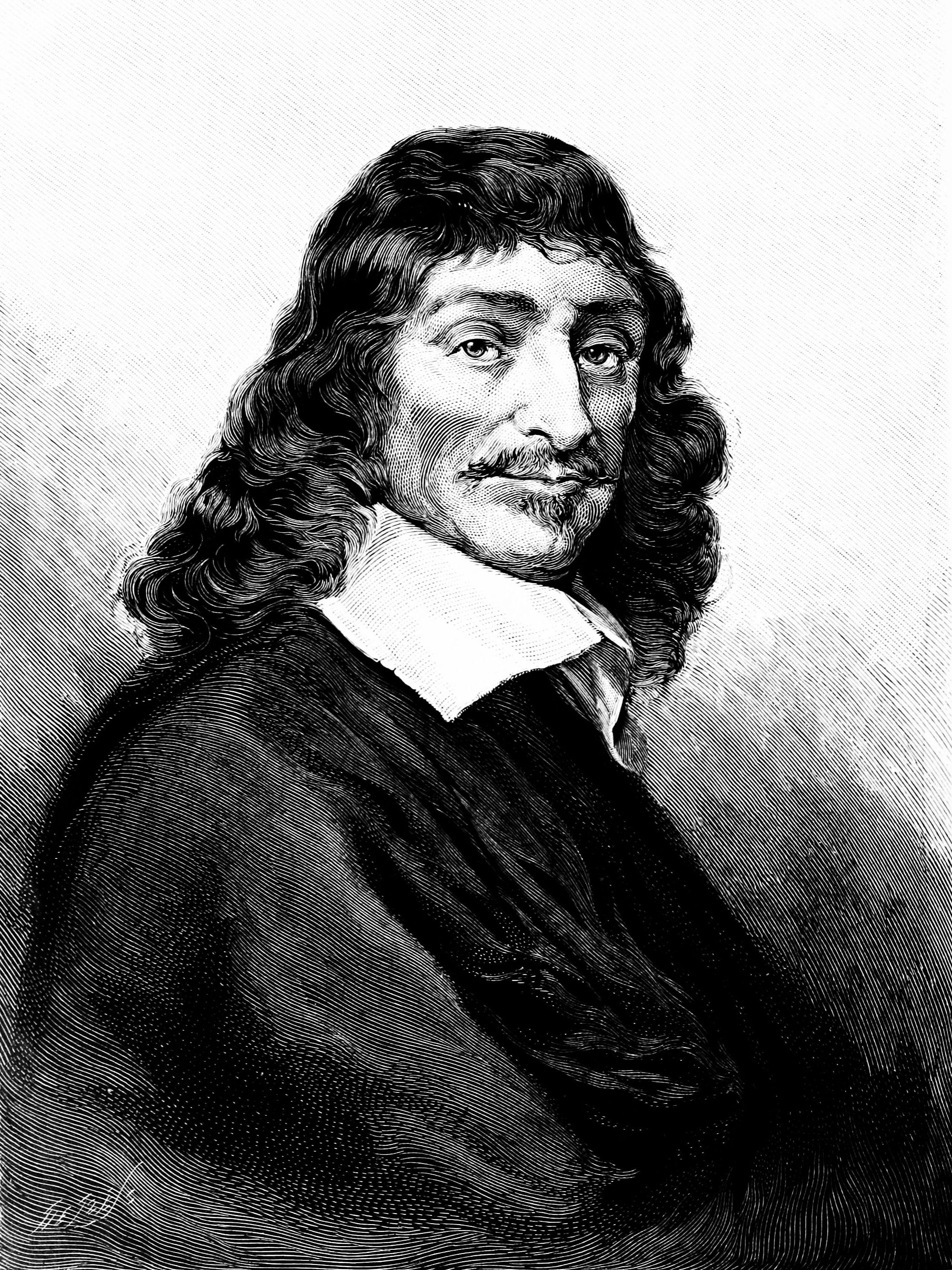
British philosopher and eminent Descartes scholar the late Sir Bernard Williams talks about the relevance and importance of Descartes as a seminal figure of modern philosophy. René Descartes, as a man of science, mathematics and philosophy, known best for his ‘Discourse on Method’ and ‘Meditations on First Philosophy’, certainly marks the point at which the world decided to go ‘modern’. His philosophical system based on deductive reasoning and a priori truths, were the basis for seventeenth century Rationalism. Individualistic, lucid and methodical, he believed in innate ideas, ones that do not come to us through experience, and not to forget his contributions to analytic geometry and the mind-set behind the scientific method, Descartes was determined to make a clean sweep of all the comfortable old assumptions, to take nobody’s word for anything, to doubt everything. We are all better for that.
Part 1
Part 2
Part 3
Part 4
part 5

 I was just looking at your website… amazing it is… full of knowledge as always..
I was just looking at your website… amazing it is… full of knowledge as always.. Photo gallery
Photo gallery Photo gallery
Photo gallery Photo gallery
Photo gallery Milindo Taid – ace teacher, rockstar guide to my projects at film school, guitarist and photographer too. Really good human being as well
Milindo Taid – ace teacher, rockstar guide to my projects at film school, guitarist and photographer too. Really good human being as well Oldest operating bookstore
Oldest operating bookstore Photo Gallery
Photo Gallery Photo gallery
Photo gallery We need more teachers like you :)
We need more teachers like you :) Photo gallery
Photo gallery So glad you enjoyed my photos, really honored to be featured on your blog. thank you sir!
So glad you enjoyed my photos, really honored to be featured on your blog. thank you sir! Hi Milindo, hope you are inspiring many more around you…wherever you are!
Hi Milindo, hope you are inspiring many more around you…wherever you are! Milind never told u but u were my first true inspiration….I almost learnt the guitar watching u play…..thanx for being there
Milind never told u but u were my first true inspiration….I almost learnt the guitar watching u play…..thanx for being there This is great…..in fact the entire website is a wonderful treasure. thanks sir!
This is great…..in fact the entire website is a wonderful treasure. thanks sir! You are awesome :)
You are awesome :) Love your site Milindo. I was excited to see you displaying my husband’s watermelon carvings
Love your site Milindo. I was excited to see you displaying my husband’s watermelon carvings veryveryinterestingwebsite.have been visiting! thankyou!
veryveryinterestingwebsite.have been visiting! thankyou! great blog :)
great blog :) Still a fan of your unique and sweet finger strum on acoustic guitar. It made an ordinary guitar sound great. Would just love to see and hear one of those too.
Still a fan of your unique and sweet finger strum on acoustic guitar. It made an ordinary guitar sound great. Would just love to see and hear one of those too. Photo gallery
Photo gallery Photo gallery
Photo gallery Photo Gallery
Photo Gallery i really like your blog – good interesting stuff as always !
i really like your blog – good interesting stuff as always ! Photo gallery
Photo gallery This is by far amongst the best curated creative content sites out there and the eye and vision of one man, when good, works better than any funded team. Inspired enormously once again :)
This is by far amongst the best curated creative content sites out there and the eye and vision of one man, when good, works better than any funded team. Inspired enormously once again :) hope you’re changing the world as always :)
hope you’re changing the world as always :) Absolutely amazing blog – a chest full of treasure.
Absolutely amazing blog – a chest full of treasure. Your courses were always the best. By the way, just went through a bit of your website. It’s great! Some good stuff in there that I wouldn’t normally chance upon
Your courses were always the best. By the way, just went through a bit of your website. It’s great! Some good stuff in there that I wouldn’t normally chance upon You’re a role model sir, such awesomeness !!! :D
You’re a role model sir, such awesomeness !!! :D Photo gallery
Photo gallery Photo gallery
Photo gallery Photo gallery
Photo gallery Your website is full of delightful posts. I’m going to have to watch where my time goes when I’m visiting! :)
Your website is full of delightful posts. I’m going to have to watch where my time goes when I’m visiting! :) Photo Gallery
Photo Gallery Just detected your blog: impressive. wishing you continued inspiration and health.
Just detected your blog: impressive. wishing you continued inspiration and health. love ur pics…they are like those moments which u capture in your mind and wished u had a camera right at that moment to capture it…but u actually do capture them :) beautiful…!!!
love ur pics…they are like those moments which u capture in your mind and wished u had a camera right at that moment to capture it…but u actually do capture them :) beautiful…!!! You are the only faculty member I could connect to!
You are the only faculty member I could connect to! Its really good to see you Milindo, with such awesome stuff from you as usual.. loved your blog as well!
Its really good to see you Milindo, with such awesome stuff from you as usual.. loved your blog as well! Never thought I’d say this, but it was the most interesting classes I’ve sat in.. and of course, the day you played Sultans of Swing for us. Hope you continue to influence the next generations with your dynamic yet simple teachings.
Never thought I’d say this, but it was the most interesting classes I’ve sat in.. and of course, the day you played Sultans of Swing for us. Hope you continue to influence the next generations with your dynamic yet simple teachings. Grt milindo. eachtime want to check out something good on net…know where to go now!
Grt milindo. eachtime want to check out something good on net…know where to go now! OMG its like a painting!! you have taken photography to another level!!!
OMG its like a painting!! you have taken photography to another level!!! Photo gallery
Photo gallery Photo gallery
Photo gallery You are inimitable!
You are inimitable! With all the magical places you are checking off your bucket list! I want to know how to be you :)
With all the magical places you are checking off your bucket list! I want to know how to be you :) Guitar in your hand reminds me of the MCRC days! You are terrific… :)
Guitar in your hand reminds me of the MCRC days! You are terrific… :) Photo gallery
Photo gallery Photo gallery
Photo gallery #NowFollowing @Milindo_Taid One of the most influential n interesting mentor from my design school. Always loaded. :)
#NowFollowing @Milindo_Taid One of the most influential n interesting mentor from my design school. Always loaded. :) You’ll love this site by the awesome Milindo Taid
You’ll love this site by the awesome Milindo Taid Photo gallery
Photo gallery Photo gallery
Photo gallery Photo gallery
Photo gallery
thanks! time well spent.